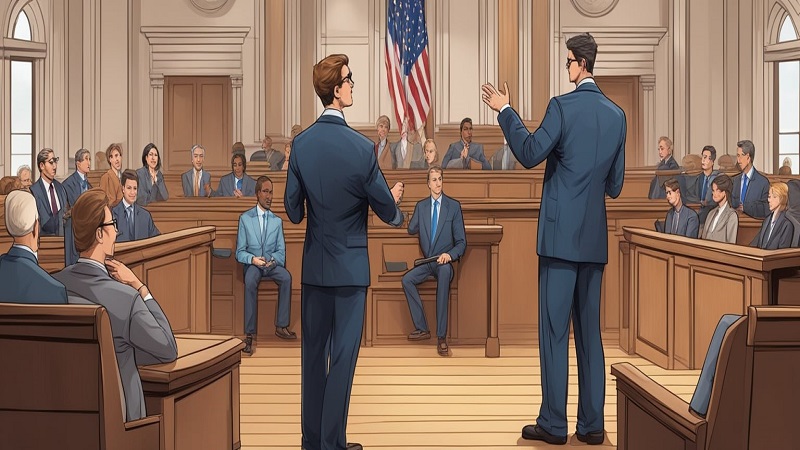When facing criminal charges in Springfield, Missouri, the stakes are high. An experienced defense attorney can make all the difference in protecting one’s rights and future. A skilled criminal defense lawyer in Springfield, MO fights tirelessly to ensure clients receive fair treatment under the law and the best possible outcome for their case.
The legal system can be complex and intimidating. Having a knowledgeable advocate levels the playing field against prosecutors. A seasoned attorney understands local court procedures, judges, and legal precedents that may impact a case.
Criminal convictions carry serious consequences beyond potential jail time or fines. They can affect employment, housing, and relationships for years to come. A strong defense strategy aims to minimize these long-term repercussions and help clients move forward with their lives.
Understanding Criminal Defense
Criminal defense is a complex area of law that protects the rights of those accused of crimes. It involves navigating legal procedures, building strong defense strategies, and advocating for defendants in court.
Types of Criminal Charges
Criminal charges range from minor infractions to serious felonies. Misdemeanors typically include offenses like simple assault, petty theft, or disorderly conduct. These often result in fines or short jail sentences.
Felonies are more severe crimes, such as homicide, robbery, or drug trafficking. They carry harsher penalties, including lengthy prison terms.
Federal crimes involve violations of U.S. federal law and are prosecuted in federal courts. These include white collar crimes like fraud and embezzlement.
Violent crimes, sex crimes, and DUI/DWI offenses are also common criminal charges. Each type requires specific defense approaches.
The Legal Process in Criminal Cases
The criminal justice process begins with an arrest or citation. Next, the accused appears in court for arraignment, where charges are formally presented.
Pre-trial motions and negotiations may follow. This stage can involve plea bargaining or attempts to suppress evidence.
If the case goes to trial, both prosecution and defense present evidence and arguments. A judge or jury then determines guilt or innocence.
Post-trial procedures may include sentencing hearings and appeals. Throughout this process, defendants have constitutional rights that must be protected.
Importance of a Defense Strategy
A strong defense strategy is crucial in criminal cases. It begins with a thorough investigation of the charges and evidence.
Defense attorneys may challenge the legality of searches or arrests. They can also work to discredit unreliable witnesses or flawed forensic evidence.
In some cases, establishing an alibi or presenting alternative explanations for events can be effective. Mental health defenses or claims of self-defense may apply in certain situations.
Plea negotiations are often part of the defense strategy. This can lead to reduced charges or more lenient sentencing recommendations.
Choosing the Right Defense Attorney
Selecting an experienced defense attorney is crucial for protecting your rights and achieving the best possible outcome in your case. A skilled lawyer can provide expert guidance, develop effective defense strategies, and advocate for you in court.
Consultation and Legal Representation
Most reputable defense attorneys offer free initial consultations. This meeting allows you to discuss your case and assess if the lawyer is a good fit. During the consultation, ask about their experience with cases similar to yours.
A qualified attorney will explain potential defense strategies and legal options. They should outline the strengths and weaknesses of your case. This information helps you make informed decisions about your legal representation.
Some key questions to ask include:
- How many years have you practiced criminal defense?
- What percentage of your cases go to trial?
- How often do you achieve favorable plea bargains?
Experience in Courtroom and Defense Strategies
Look for a defense attorney with extensive courtroom experience. A lawyer who regularly appears in court will be familiar with local judges and prosecutors. This knowledge can be valuable in negotiating plea deals or presenting your case at trial.
Experienced attorneys develop effective defense strategies tailored to each case. They may:
- Challenge evidence collection procedures
- Question witness credibility
- Negotiate for reduced charges
- Argue for alternative sentencing options
A skilled trial attorney knows how to present evidence persuasively and cross-examine witnesses effectively. This expertise can make a significant difference in the outcome of your case.
Personalized Approach to Criminal Defense
Choose a defense attorney who takes a personalized approach to your case. They should:
- Listen carefully to your version of events
- Explain legal concepts in clear, understandable terms
- Respond promptly to your questions and concerns
- Keep you informed about case developments
A dedicated lawyer will work closely with you to build a strong defense. They may:
- Investigate the circumstances of your arrest
- Gather evidence to support your case
- Consult with expert witnesses when necessary
- Prepare you thoroughly for court appearances
Look for an attorney who is recognized by professional organizations like Super Lawyers. This designation indicates peer recognition and a history of achieving positive results for clients.


